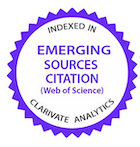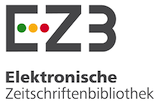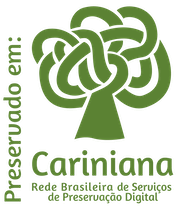Potencial deteriorante da microbiota mesófila, psicrotrófica, termodúrica e esporulada do leite cru
DOI:
https://doi.org/10.1590/1809-6891v21e-44034Resumo
Resumo
Considerando os diversos problemas tecnológicos e econômicos que os microrganismos deteriorantes acarretam aos laticínios, o objetivo deste trabalho foi quantificar aeróbios mesófilos, psicrotróficos, termodúricos e esporulados no leite cru produzido na região Norte do Paraná e verificar a capacidade proteolítica e lipolítica desses microrganismos. Foram analisadas 20 amostras de leite cru e determinadas contagens de aeróbios mesófilos, psicrotróficos, termodúricos mesófilos, termodúricos psicrotróficos e esporos aeróbios e o perfil proteolítico e lipolítico de cada grupo. A contagem média de aeróbios mesófilos foi de 1,7x106UFC/mL acima do limite estabelecido pela Instrução Normativa 76 (3,0x105UFC/mL); 55% das amostras apresentaram contagens dentro dos padrões. As contagens de psicrotróficos variaram de 1,0x102 a 9,9x106UFC/mL e em 30% das amostras esse valor foi superior ao de mesófilos. A média de termodúricos mesófilos foi de 2,4x104UFC/mL, de termodúricos psicrotróficos 1,7x102UFC/mL e de esporos aeróbios foi de 5,0x101UFC/mL. Quanto ao perfil deteriorante, todos os grupos apresentaram atividade lipolítica e proteolítica elevadas, com predomínio de bactérias lipolíticas. Os valores encontrados indicam que o manejo higiênico-sanitário inadequado durante a ordenha e o resfriamento prolongado favorece a proliferação da microbiota deteriorante, que pode promover alterações significativas na qualidade e no rendimento do leite e seus derivados, mesmo após tratamento térmico.
Palavras-chave: lipólise; proteólise; refrigeração; microbiota deteriorante.
Downloads
Referências
EMBRAPA. Empresa Brasileira de Pesquisa Agropecuária. Indicadores: Leite e Derivados. Juiz de Fora: Embrapa Gado de Leite, 2018; Ano 9(78)2018, 16 p.
BRASIL. Ministério da Agricultura, Pecuária e Abastecimento. Instrução Normativa n°. 76 de 26 de novembro 2018. Aprova o Regulamento Técnico de Produção, Identidade e Qualidade do Leite Cru Refrigerado, Leite Pasteurizado e o Leite pasteurizado tipo A. Diário Oficial da República Federativa do Brasil. Brasília. 2018.
Santos M. V., Fonseca L. F. L. Qualidade do leite e controle de mastite. São Paulo: Lemos Editorial; 2007. 288 p.
Santana E. H. W., Beloti V., Barros M. A. F., Moraes L. B., Gusmão V., Pereira M. S. Contaminação do leite em diferentes pontos do processo de produção: Microrganismos aeróbios mesófilos e psicrotróficos. Semina: Ciências Agrárias, Londrina. 2001;22(2):145-154.
Beloti V. Leite: Obtenção, Inspeção e Qualidade. 1st ed. Londrina: Editora Planta; 2015. 480 p.
Celestino E. L., Iyer M, Roginsky H. Reconstituted UHT-treated milk: effects of raw milk, poder qualityand storage conditions of UHT milk on its physico-chemical atributes and flavor. Int Dairy J, 1997;7(1):129-140.
Cousin M. A. Presence and activity of psychrotrophic microorganisms in milk and dairy products: a review. J Food Prot. 1982; 45(2):172-207.
Furtado M. M. Principais Problemas dos Queijos: Causas e Prevenção. São Paulo: Fonte Comunicações e Editora; 1999. 200 p.
Franco B. D. G. M., Landgraf M. Microbiologia dos Alimentos. 2 nd ed. São Paulo: Atheneu; 2003.182 p.
BRASIL. Ministério da Agricultura, Pecuária e Abastecimento. Instrução Normativa no. 68 de 12 de dezembro de 2006. Oficializa os Métodos Analíticos Oficiais Físico-Químicos, para Controle de Leite e Produtos Lácteos, em conformidade com o anexo desta Instrução Normativa, determinando que sejam utilizados nos Laboratórios Nacionais Agropecuários. Diário Oficial da União. Brasília. 2006.
Nero, L. A., Beloti, V., Barros, M. A. F. Métodos rápidos e automatizados para enumeração de microrganismos indicadores em leite-utilização no Brasil. Semina Ciênc Agrar, 2000; 21(1), 115-26.
Frank J. F, Yousef A. E. Test for groups of microrganisms. In: Wehr HM, Frank JK (Eds.) Standard Methods forth e Examination of Dairy Products.17th ed. Washington: American Public Health Association; 2004. p. 239-242.
Beerens, H., Luquet, F.M. Guía practico para el análisis microbiológico de la leche y los productos lácteos. Zaragoza: Editorial Acríbia S.A; 1990. 141p.
Hantsis-Zacharov, E., Halpern, M. Culturable psychrotrophic bacterial communities in raw milk and their proteolytic and lipolytic traits. Appl Environ Microbiol. 2007; 73, 7162-7168.
IBGE: Instituto Brasileiro de Geografia e Estatística. Análise da Conjuntura Agropecuária [citado em 2015 Oct 24]. Disponível em: http://www.ibge.gov.br
Nero L. A, Mattos M. R, Beloti V., Barros M. A, Pinto P. A. N., Andrade N. J, Silva N. J, Franco D. G. M. Leite cru de quatro regiões leiteiras brasileiras: perspectivas de atendimento dos requisitos microbiológicos estabelecidos pela Instrução Normativa 51. Ciênc. Tecnol. Aliment., Campinas, 2005;25(1):191-195.
Vallin M. V. Melhoria da qualidade do leite a partir da implantação de boas práticas de higiene na ordenha em 19 municípios da região central do Paraná, Semina: Ciências Agrárias, Londrina. 2009;30(1):181-188.
Bozo G. A. Adequação da contagem de células somáticas e da contagem bacteriana total em leite cru refrigerado aos parâmetros da legislação. Arquivo Brasileiro de Medicina Veterinária e Zootecnia. 2013;65(2): 589-594.
Pinto C. J. O., Martins M. L., Vanetii M. C. D. Qualidade microbiológica de leite cru refrigerado e isolamento de bactérias psicrotróficas proteolíticas. Ciênc. Tecnol Aliment, Campinas, 2006;26(3):645-651.
Arcuri E. F., Silva P. D. L., Brito M. A. V. P., Brito J. R. F., Lange C., Magalhães M. M. A. Contagem, isolamento e caracterização de bactérias psicrotróficas contaminantes de leite cru refrigerado. Ciênc. Rural, Santa Maria. 2008;38(8):2250-2255.
BRASIL. Ministério da Agricultura, Pecuária e Abastecimento. Departamento Nacional de Inspeção de Produtos de Origem Animal. Regulamento de Inspeção Industrial e Sanitária de Produtos de Origem Animal. 77 p. Aprovado pelo Decreto no 9.013 de 29 de março de 2017. Diário Oficial da República Federativa do Brasil. Brasília. 2017.
Ribeiro Júnior, J. C. Microrganismos termodúricos psicrotróficos com atividade proteolítica em leite cru refrigerado. In: Sul Leite - Simpósio sobre sustentabilidade da pecuária leiteira na região Sul do Brasil, 2014; Maringá, Paraná. Anais... Maringá: UEM, 2014.
Rossi Junior O, Vidal-Martins A. M. C., Salotti B. M., Burger K. P., Cardozo M. V., Cortez A. L. L. Estudo das características microbiológicas do leite UAT ao longo de seu processamento. Arq. Inst. Biol., São Paulo. 2006;73(1):27-32.
Buehner K. P., Anand S., Garcia A. Prevalence of thermoduric bacteria and spores on 10 midwest dairy farms. J. Dairy Sci. 2014;97(11):6777-6784.
Hull R., Toyne S., Haynes I., & Lehmann F. Thermoduric bacteria: a re-emerging problem in cheesemaking. Aust. J. Dairy Technol. 1992;47( 2): 91-94.
Moreira N. V., Montanhini M. T. M. Contaminação do leite na ordenha por micro-organismos proteolíticos e lipolíticos. Rev. Bras. Hig. Sanid. Anim.. 2014;8(2):29-38.
Haryany S., Datta N., Elliott A. J., Deeth H. C. Production of protease by psychrotrophic bacteria in raw milk stored at low temperature. Aust. J. Dairy Technol. 2003; 58(1):15-20.
Costa E. F. Interferência de práticas de manejo na Qualidade microbiológica do leite produzido em propriedades rurais familiares[dissertação de Mestrado]. Jaboticabal: Universidade Estadual Paulista “Julio de Mesquita Filho”; 2006. Disponível em: https://www.fcav.unesp.br/Home/download/pgtrabs/zoo/m/2665.pdf
» https://www.fcav.unesp.br/Home/download/pgtrabs/zoo/m/2665.pdf
Montanhini M.T. M., Hein K. K. Qualidade do leite cru comercializado informalmente no município de Piraí do Sul, Estado do Paraná, Brasil. Rev. Inst. Laticínios Cândido Tostes, Juiz de Fora, 2013; 68(393):10-14.
Hass M. Lipolytic microorganisms. In: Downs FP, Ito K. Compendium of methods for the microbiological examination of foods. 4.th ed. Washington DC: American Public Health Association: 2001. p.175-181.
Silva L. C. C., Beloti V., Tamanini R., d’Ovidio L., Mattos M. R., Arruda A. M. C. T., Pires E. M. F. Rastreamento de fontes da contaminação microbiológica do leite cru durante a ordenha em propriedades leiteiras do Agreste Pernambucano. Semina: Ciências Agrárias, Londrina, 2011; 32(1):267-276.
Publicado
Como Citar
Edição
Seção
Licença
Copyright (c) 2020 Ciência Animal Brasileira

Este trabalho está licenciado sob uma licença Creative Commons Attribution 4.0 International License.
Autores que publicam nesta revista concordam com os seguintes termos:
- Autores mantém os direitos autorais e concedem à revista o direito de primeira publicação, com o trabalho simultaneamente licenciado sob a Licença Creative Commons Attribution que permite o compartilhamento do trabalho com reconhecimento da autoria e publicação inicial nesta revista.
- Autores têm autorização para assumir contratos adicionais separadamente, para distribuição não-exclusiva da versão do trabalho publicada nesta revista (ex.: publicar em repositório institucional ou como capítulo de livro), com reconhecimento de autoria e publicação inicial nesta revista.
- Autores têm permissão e são estimulados a publicar e distribuir seu trabalho online (ex.: em repositórios institucionais ou na sua página pessoal) a qualquer ponto antes ou durante o processo editorial, já que isso pode gerar alterações produtivas, bem como aumentar o impacto e a citação do trabalho publicado (Veja O Efeito do Acesso Livre).






























